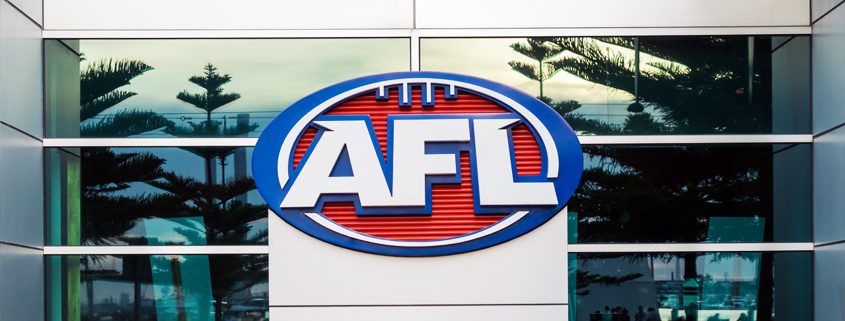If there was ever a question of whether professional athletes are rewarded with cultural immunity, Friday’s broadcast of the Geelong v Collingwood AFL game did a pretty good job at providing an answer.
Magpies midfielder Jordan De Goey was met with a clamour of support as he returned to the field following a week on the bench, after being charged with sexual and indecent assault on 4 July.
The charges laid by Victoria Police stemmed from an alleged incident that occurred in 2015 and saw the 24-year-old stood down from Collingwood’s senior side for only one game.
The problem is, a one-game ban doesn’t reflect the severity of his actions.
It’s not the first time De Goey has been caught on the wrong side of the law, either: in 2018 the star midfielder was caught drink driving, blowing nearly twice the amount of the legal limit. The previous year he was fined $5000 by Collingwood Football Club and suspended for three matches after lying about his involvement in a bar fight.
Because lying is worse than allegedly committing sexual assault, right?
It’s unfathomable that De Goey is still permitted to play for Collingwood and be in the public arena in the lead up to his trial in October. The AFL has not only let his actions slide, it has rewarded him.
Kicking five goals and rejoicing like nothing had happened, De Goey earned himself the title of “Best on Ground”, which later evolved into “the Comeback King” across social media after Friday’s win against the Cats.
When North Melbourne footballer Majak Daw was allowed to keep playing week-to-week while he stood trial in 2015 on three counts of rape, several victims’ groups argued that his club or the league should stand him down. At the time, Centre Against Sexual Assault forum spokesman Carolyn Worth told the Herald Sun that “until your name is cleared, you shouldn’t be in a position of influence and I think those boys [footballers] are in a position of influence.”

AFL is a game for the whole family, and those families include children who see athletes as role models, viewing them though a lens that depicts them as real-life superheroes. So when a footballer barely gets a slap on the wrist for sexual assault or physical violence, it’s teaching our children, particularly our boys, that this behaviour is permissible.
Jordan De Goey shouldn’t be playing. If he was an NRL player, he wouldn’t be.
In 2019, the Australian Rugby League Commission enacted a “no-fault stand down” policy for NRL players who are charged with serious criminal offences. The policy is rooted in the idea that as soon as a player is charged with an offence that carries the possibility of at least 11 years in jail, the player is stood down until the conclusion of the case.
While the attitude “innocent until proven guilty” can be appreciated, in almost any other profession an employee with assault charges directed at them would be stood down immediately.
It’s almost laughable that the AFL, an organisation with a “Respect and Responsibility Policy” that vows to address violence against women across the football industry and the broader community, does not follow through when there is potential for star players to be on the bench.
This is suggestive of a much greater problem within the sporting sphere, where misogyny and corporate interests take priority over all other facets.
De Goey and Daw certainly are not the only players to be excused by the top of the AFL hierarchy.
Take Wayne Carey for example: the ex-North Melbourne footballer has a laundry list of foul play, including a guilty plea to indecent assault after grabbing a woman’s breast in 1997, an arrest for misdemeanour battery in 2004, as well a conviction for assaulting a US police officer who responded to a scene where Carey allegedly smashed a wine glass in his girlfriend’s face in 2007.

And yet, he still holds the title of “AFL Legend”, and a recurring seat at the Channel Seven AFL commentators’ table.
Former St Kilda footballer Stephen Milne was also permitted to continue playing throughout the 2013 season while facing rape charges stemming from an incident in 2004. The charges were later dropped when Milne pleaded guilty to the lesser charge of indecent assault.
As a society, it’s shameful that we continue to give men a free pass just because they excel at sport, as if proclaiming “Yeah, but he can kick a ball really well!” outweighs the fact that footballers routinely assault women throughout their careers.
Channel Seven’s commentary panel couldn’t sing enough of De Goey’s praises during Friday’s broadcast. It was almost as if the Magpie’s actions were all but forgotten until veteran commentator Bruce McAvaney explicitly referred to the sexual assault charge as “a hiccup”.
While McAvaney apologised following the game, his flippant reference to De Goey’s charges tells us all we need to know about AFL culture in regards to assault: it’s a boys’ club full of apologists that would rather see a cracker game of footy than address the league’s deep-rooted sexism.
Collingwood’s Twitter account also remains home to a tweet stating “Welcome back, Jordy”, accompanied by a clip boasting McAvaney’s ill commentary, as if De Goey were a noble soldier returning from war, instead of a disgraced footballer charged with sexual assault.
We need to forgo the narrative that players are “doing it tough” after being brought to task in the media for their actions, and change the culture that gives footballers herd immunity over their morally repugnant behaviour.
Regardless of a person’s status or athletic ability, we must call out abusive behaviours and reinforce the consequences.
If anything, Jordan De Goey’s arrest and subsequent charge of indecent assault should jolt league CEO Gillon McLachlan into implementing a policy similar to the NRL’s “no-fault stand down” rule.
Aussie Rules might be Australia’s national sport but, if you ask me, there’s nothing Aussie about assault.


